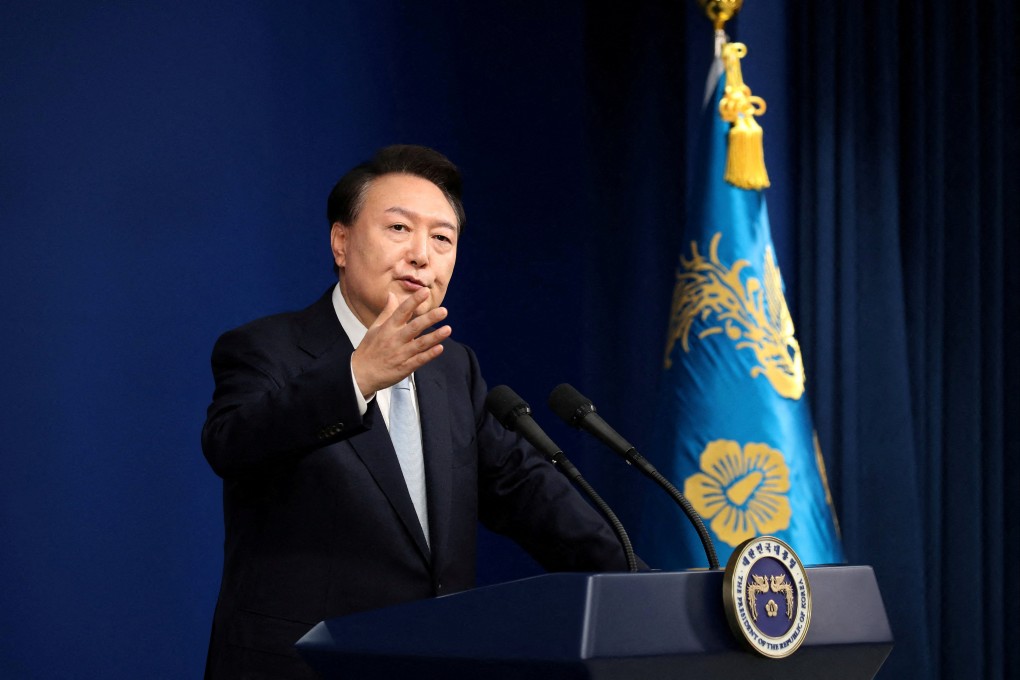Advertisement
South Korea’s ‘bleeding duck’ Yoon hammered by poor ratings, mounting crises
Many voters say they’re fed up with President Yoon Suk-yeol’s political mismanagement, his wife’s scandals and the high cost of living
Reading Time:3 minutes
Why you can trust SCMP
5

South Korea’s President Yoon Suk-yeol continues to face a storm of criticism that has driven his approval ratings to record lows – with analysts attributing this decline to his lacklustre political management, the country’s soaring inflation, and the ongoing controversies surrounding his wife, Kim Keon-hee.
Advertisement
Yoon’s approval rating has plummeted to just 20 per cent, the lowest since he took office in May 2022, a recent Gallup Korea poll published on Friday reveals. Respondents cited his mishandling of the ongoing doctors’ strike, rising living costs, and a perceived failure to communicate effectively as reasons for their discontent.
This represents a significant drop from his peak approval of 53 per cent in June 2022, shortly after his inauguration.
Adding to his troubles, Yoon’s ruling People Power Party (PPP) suffered a crushing defeat in April’s general election – widely perceived as a referendum on his presidency. The opposition, led by the Democratic Party of Korea, won a commanding 192 of 300 seats in the National Assembly.
In a separate Realmeter poll released on Monday, Yoon’s approval rating also hit a low of 27 per cent, down 2.9 percentage points from the previous week.

Support for Yoon among conservative voters has dwindled amid growing dissatisfaction with rising prices, especially during the Chuseok harvest holiday. Analysts argue that the government’s overly optimistic projections for domestic spending this year are seen as disconnected from economic realities.

Advertisement